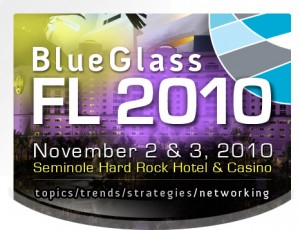Do you sometimes feel you can’t squeeze any more performance out of your campaigns? You’ve optimized everything, and you just can’t boost performance much further?
Have you looked at your international options?
Articles on PPC tend to focus on the US market. Let’s take a look at the massive opportunities in the international market, from a US perspective.
Untapped Markets
The US, whilst the biggest search market, still only accounts for approximately 17 percent of searches conducted globally.
According to ComScore’s 2010 search survey:
China ranked second with 13.3 billion searches, followed by Japan with 9.2 billion and the U.K. with 6.2 billion. Among the top ten global search markets, Russia posted the highest gains in 2009, growing 92 percent to 3.3 billion, followed by France (up 61 percent to 5.4 billion) and Brazil (up 53 percent to 3.8 billion)
As you can see, there’s a lot of search volume to be had beyond the US, even if you limit your market to the larger English speaking nations, like Australia and the UK.
Also, being a US-based PPC operative, you may have a serious advantage in those markets.
If you’ve been doing PPC in the US for a while, and you’ve mastered intermediate-advanced techniques, you may be able to out-compete international PPC operators in their local markets, because they haven’t had to fight so hard. Lower levels of competition means campaigns may be run a bit looser than what you’re used to. A generalization, of course, but generally true of less competitive markets.
And there’s another advantage: exchange rate.
Given the US dollar is currently weaker against some other major currencies, you can make bank on the exchange rate alone.
For example, the UK pound is, at the time of writing, worth $1.54 US. If you price your merchandise/services in pounds, without converting, you gain a 50% margin. People spend a UK £ pretty much like you spend a US $, so, depending on your market, you may not have to adjust your price figures.
But before you think it might be too easy, here’s where the locals may out-gun you….
The Challenge
Whilst most aspects of your PPC campaign will remain the same – your bidding strategy, CTR, Quality Score etc – there are differences you need to consider.
1. Pitch
Generally speaking, advertising targeted at US consumers is different to the advertising targeted at, say, UK consumers.
US advertising tends to be seen by more reserved cultures as brash and over-the-top. In order to appeal to consumers in the UK, tone down a hard pitch a few notches.
The easiest way to find the right level is examine the landing pages of competitors in your target market. It’s not just that spelling is different i.e. color vs colour – the underlying psychology is different. This is a generalization, but notice that not all cultures are as optimistic and motivated by personal success as the US. Benefit propositions tend not be pushed quite so hard.
An article in the Independent, a UK newspaper, highlighted the differences in the advertising world: Less business, more arts and entertainment:.
In Britain, advertising and its people are socially smart in the wider world in direct ratio to their distance from hard selling and their resemblance to the arts and entertainment. And advertising people definitely take their place in our great world.
In America, advertising isn’t that socially glamorous – they’ve got Hollywood after all – and its practitioners aren’t so famous, but they make millions and it’s an acceptable career choice for a decent MBA graduate who thinks creativity is something best left to window-dressers.
That’s not directly applicable to the direct marketing channel, but it gives you some idea of different underlying culture behind advertising and acceptance thereof. The good news, for US advertisers, is that the web is making everything more American. People are growing more accustomed to the hard sell, online, at least.
Again, study your competitors in terms of pitch, and revise accordingly.
If your budget allows, try to hire a copywriter based in the target market to adjust your copy.
2. .co.uk and com.au
Having a local domain name, and indicators of local presence, can help.
Just as you are likely to notice domain names that don’t end in .com, people in other countries are typically more comfortable buying from domains with local extensions, particularly when it comes to the delivery of physical items. It doesn’t tend to matter so much for merchandise or services that are delivered digitally.
It also helps if you can provide a local free calling number, and if possible, a local service address.
This is not to say any of this is necessary. People will buy from anywhere, if the deal is right.
3. Price In Local Currency
How do you feel if you see a checkout denominated in a currency other than US dollars? It can be off-putting. It can feel more risky. Same goes for people in local markets.
If you can, provide local pricing information. If not, at least provide a currency exchange widget.
4. Translation English To English
If you’re doing the ad writing and copywriting yourself, don’t forget the obvious stuff – terminology and spelling.
Here’s a useful translation dictionary for different spelling and terms.
 I got an email on Friday from a non-tech savvy friend that had recently asked me for advice on where to set up a new email account for her home business. I recommended gmail, pretty much just as a reflex.
I got an email on Friday from a non-tech savvy friend that had recently asked me for advice on where to set up a new email account for her home business. I recommended gmail, pretty much just as a reflex. Over the weekend Gawker Media’s site network including lifehacker, Jezebel, Gawker, Gizmodo and others
Over the weekend Gawker Media’s site network including lifehacker, Jezebel, Gawker, Gizmodo and others  I’m very excited to be presenting at the upcoming
I’m very excited to be presenting at the upcoming 


